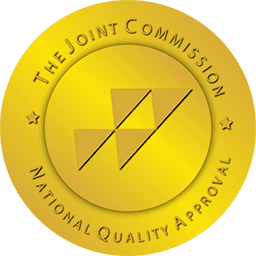Melatonin is a naturally occurring hormone that promotes sleep. Also known as the “sleep hormone,” melatonin has calming and sedative effects that lead many to rely on it as a non-prescription sleep aid.
Synthesized melatonin, which is sold in supplement form to improve sleep patterns and encourage relaxation, is often touted as being natural and safe. Though it’s not addictive, melatonin is not completely without risk.
What Is Melatonin?
Melatonin is a hormone that’s produced in the body in the presence of darkness.[1] It helps to maintain the body’s circadian rhythms, or 24-hour internal clock that regulates the sleep-wake cycle.
Research suggests that melatonin plays other roles in the body other than sleep, but the effects are not well understood.
Darkness triggers the production of melatonin, which signals the body to sleep. Light signals the body to wake by decreasing melatonin production. In some people with sleep disorders like circadian rhythm disorders or insomnia, low melatonin may be a factor.
Melatonin is offered as an over-the-counter supplement to help people with sleep disorders, such as people with visual impairments, shift workers, or children with developmental disorders.[2] There’s not enough strong evidence to indicate that melatonin is effective or safe for regular use, however.
Is Melatonin Addictive?
There’s no evidence that melatonin can be addictive or habit-forming. People who take melatonin don’t build up a tolerance, and there’s no withdrawal or symptoms of dependence with regular use – several common symptoms of addiction.
Melatonin may not be addictive, but that doesn’t mean it’s without risk. Melatonin is naturally occurring, leading many to believe it’s completely safe to take. It can have unpleasant side effects or possible interactions with other over-the-counter or prescription drugs.[3]
Melatonin Side Effects
The most common side effect of melatonin is drowsiness, which is expected with a natural sleep aid. Other common side effects include:
- Headache
- Dizziness
- Nausea
- Daytime drowsiness
Some of the less common melatonin side effects include:
- Short-term feelings of depression
- Irritability
- Vivid dreams or nightmares
- Stomach cramps
- Diarrhea
- Constipation
- Decreased appetite
- Increased risk of falls
- Increased risk of seizures
- Urinary continence at night
- Disorientation and confusion
- Reduced alertness
- Mood swings
It’s important not to drive or operate heavy machinery within five hours of taking melatonin, as it can cause drowsiness.
Short-term use of melatonin supplements seems to be safe for most people, but the long-term safety of melatonin supplements has not been researched enough to have a clear picture of safety.
Melatonin Drug Interactions
Melatonin can have potential interactions with other drugs, both over-the-counter and prescription. It’s important to consult with a physician before using melatonin, particularly if you take blood thinner medications or have epilepsy.
There are several possible interactions with melatonin and other drugs, including:
- Medication that prevents seizures
- Medication that slows blood clotting
- Birth control medication
- Diabetes medication
- High blood pressure medication
- Medication that’s metabolized by the liver
- Medication that suppresses the immune system
There’s also a possibility of an allergic reaction, not just with melatonin itself, but with other ingredients that may be used in its processing.
Melatonin has not been researched for safety in pregnant or breastfeeding women. It’s also not recommended for older people based on the guidelines by the American Academy of Sleep Medicine.[1]
All forms of over-the-counter melatonin are dietary supplements, which are not strictly regulated by the Food and Drug Administration (FDA) compared to prescription medications or over-the-counter drugs like NSAID pain relievers.[2] In some countries, melatonin is only available with a prescription.
There are possible concerns with the regulation of melatonin supplements as well. In some cases, the melatonin amount listed on the bottle’s label may not match what’s in the pills themselves. Some melatonin supplements contain serotonin as well, which can have harmful effects.
Is Melatonin Safe for Children?

Along with the safety issues for adults using melatonin, children have additional risks. It’s important to speak to your child’s physician before supplementing with melatonin.
The availability of over-the-counter melatonin can put children at risk of accidental or intentional overdose. According to a 2022 study, the reports to U.S. Poison Control Centers revealed an increase in melatonin use among children under 19 years old from 8,337 in 2012 to 52,563 in 2021.[3] The hospitalizations and serious outcomes involving children also increased during this 10-year time frame, some of which were intentional melatonin overdoses.
There’s little research into the long-term effects of melatonin in children. Because it’s a hormone, melatonin supplements could have potential effects on hormonal development, but there hasn’t been enough research into the possible connection.[4]
Melatonin Overdoses
Melatonin is naturally occurring, but taking too high of a dose or too many doses within a short period can disrupt your circadian rhythm or cause unpleasant side effects. Technically, this is an overdose, but it’s difficult to define without an official standard dosage for everyone.
Some people are more sensitive to the effects of melatonin, so the appropriate dose and overdose can vary. In adults, the standard dose ranges from 1 mg to 10 mg. Possible overdose may occur at 30 mg or above.
Some of the symptoms of a melatonin overdose include:
- Nausea
- Dizziness
- Headaches
- Irritability
- Anxiety
- Worsening nightmares or vivid dreams
- Daytime drowsiness
- Joint pain
- In severe cases, blood pressure changes
The safe dose of melatonin depends on body weight, age, and sensitivity to the supplement. Generally, starting slow with a dose of 0.2 mg to 5 mg is safe, and the dose can increase as needed.
It may take time to find the right dosage. Too little melatonin may not produce the optimal effects, but too much could lead to daytime drowsiness and other symptoms that interfere with the sleep cycle. Higher doses won’t improve sleep. In fact, they may make sleep issues worse.
Some researchers believe that melatonin’s effectiveness depends more on the timing than the dose itself. Taking melatonin in the evening, when the body is naturally winding down for sleep, may be more effective at a lower dose.
Use Melatonin with Caution
Based on current research, Melatonin is not an addictive substance. Still, it’s important to realize that melatonin supplements can affect everyone differently, so be sure to watch for side effects or accidental overuse.
If you feel that you’re dependent on melatonin, overusing the supplement, or seeking strong prescription sleep aids, seek help from your physician. If your sleep issues are caused by another substance and addiction, Absolute Awakenings can help. Contact us to speak with an admissions counselor.













